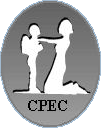



California Parents for Educational Choice (CPEC) has its roots in the friendships and associations formed during the 1993 campaign for Proposition 174, the School Voucher Initiative. In large part because of the passions aroused by the proposition and by the unethical tactics of its opponents, proponents gained a sense of solidaritywhich has continued to this present day. (Click here for a greater description of the initiative campaign) ![]()
Despite the initiative's 7-3 defeat, proponents of school choice had much to celebrate. Their campaign had resulted in the liberalization of public school choice and in legislation to allow for the creation of charter schools –that is, public schools which were relatively unfettered by the state's ssive education code. In December 1993, school choice supporters formed the Dunfey Group to evaluate alternative ideas for a new statewide voucher / school reform initiative.
Over the next two years, this group explored various voucher and school reform proposals, and based upon surveys and focus
groups, began to identify key
elements which were necessary for public acceptance of broader
school choice. The group also identified key tactical
advantages which the opponents of school choice had over its proponents.
The greatest of these advantages were (1) that opponents
had established union organizations upon which
to build any opposition campaign and school choice proponents
had to recreate an organization with each campaign, and (2)
that the voting public's mindset did
not include school choice as a reform alternative.
After a hiatus of about three years,
Dr. Alan Bonsteel decided to call a meeting of voucher supporters
to determine whether sufficient interest
existed to begin to address the
tactical advantages of opponents of
parental choice in January 1999. Because of the success
of the meeting, he and other school choice activists formed California
Parents for Educational Choice in May 1999.
Since that time, CPEC has been actively involved
in recruiting members, educating the public about the crisis
in our K-12 government education system,
and putting school choice on the table as a viable education reform
alternative. Click
here to read the details of activities in the
first 20 months of operation.
In 2001 and 2002 CPEC's activities included:
![]() Alerting the press to the lack of security
in the administration of the Stanford 9 test
in California and the more-or-less "rigged" nature of the
results, and thereby, provoking discussions
which led to significant changes in the
State's testing program,
Alerting the press to the lack of security
in the administration of the Stanford 9 test
in California and the more-or-less "rigged" nature of the
results, and thereby, provoking discussions
which led to significant changes in the
State's testing program,
![]() Exposing the phony claims by
the California Department of Education
that California's class size reduction
is materially improving academic performance by California's
public school students,
Exposing the phony claims by
the California Department of Education
that California's class size reduction
is materially improving academic performance by California's
public school students,
![]() Issuing a major study documenting that one-third
of California's children do not graduate high school,
Issuing a major study documenting that one-third
of California's children do not graduate high school,
![]() Explaining to the press why the notion of "fiscal accountability"
in public schools is a myth,
Explaining to the press why the notion of "fiscal accountability"
in public schools is a myth,
![]() Exposing financial misinformation
put out by California public
school officials concerning
per student spending and successfully encouraging
the National Center for Education
Statistics to report all-inclusive
per student spending numbers,
Exposing financial misinformation
put out by California public
school officials concerning
per student spending and successfully encouraging
the National Center for Education
Statistics to report all-inclusive
per student spending numbers,
![]() Coming to the public defense of Edison Charter School in San Francisco
when the district school board wished to revoke its
charter without cause, and
Coming to the public defense of Edison Charter School in San Francisco
when the district school board wished to revoke its
charter without cause, and
![]() Joining with the Center for Education Reform and 26 other organizations in filing an amicus brief in defense of the Cleveland, Ohio, school voucher plan before the US Supreme Court.
Joining with the Center for Education Reform and 26 other organizations in filing an amicus brief in defense of the Cleveland, Ohio, school voucher plan before the US Supreme Court.